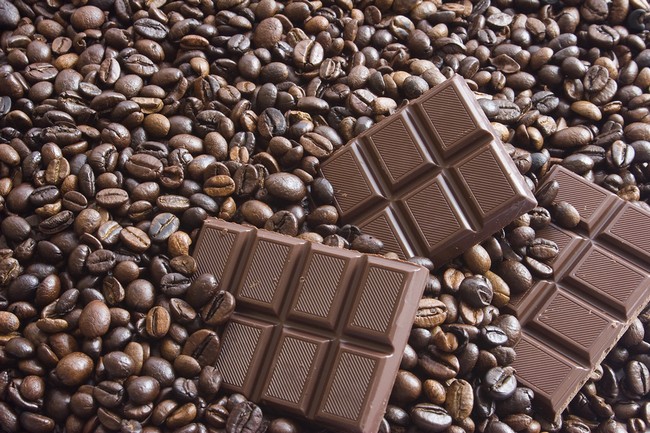- Make It Yourself Lavender Heart-Shaped Bath Bombs!
- 20 Things You Never Knew About “Down There”
- 12 Best Foods For Those Suffering From Arthritis Pain
- 12 Personal Hygiene Mistakes Almost Everyone Makes (Mom Never Told You About #4!)
- 15 Medicinal Plants And Herbs From The Cherokee People
- 12 Mind-Blowing Benefits Of Drinking Coconut Water During Pregnancy
- 12 Outstanding Winter Foods That Won’t Fatten You Up Like A Christmas Turkey
12 Incredible Foods To Fight Stress (Gotta Love #10!)

Photo credit: bigstock.com
Some people have called it the “modern man’s disease,” but there is no getting around the fact that many people in this world are suffering from relentless stress. It doesn’t matter that everyone knows that stress is behind many diseases (not to mention destroying our good looks!), but our daily exposure to varying levels of stress is undeniable.
There are numerous ways of reducing stress and tension in our lives. We can remove some of it, but there are certain levels of stress that cannot be removed or changed. When it comes to those, you will simply have to find ways to manage it through exercise, meditation, yoga, and diet.
Yes, you read that correctly: Diet. By eating certain foods, you can naturally lower stress levels by stimulating the production of relaxation and “feel good” hormones such as serotonin.
Want to know how to reduce stress simply by eating? Keep reading! We have 12 of the best foods that will do exactly that!
1. Avocados
With almost 20 essential nutrients, including vitamin E, B vitamins, folate, and potassium, just eating half an avocado each day can help to fill you up with healthy fats. If you are overweight, this is good news as it means that this might prevent you from eating more than is necessary or from snacking between meals later. Studies reported in the Nutrition Journal found that those who regularly ate avocados were 40 percent less hungry three hours after eating than those who did not eat avocados. This is because avocados can help keep your blood sugar levels stable. This combination of steady blood sugar levels combined with long-lasting feelings of satiety can help keep your mood steady, even when you are under stress.
2. Celery
Something as simple as celery can have a wide range of soothing effects. Studies show that eating four celery stalks each day will lower blood pressure levels, which is often one of the first symptoms of ongoing stress.
3. Fermented Foods
One little known secret towards improving mental health lies in your gut. When our gut flora is out of balance, it can have a terrible effect on the health of the brain, often leading to problems such as depression and anxiety attacks. The good bacteria in our gut has a direct effect on the chemistry of the brain, allow it to send both mood and behavior regulating signals to the brain via the vagus nerve. For example, one study showed that women who ate yogurt that contained active, beneficial bacteria each day had improved brain function when comparted to those who did not eat probiotics. Yogurt, Miso, sauerkraut, pickles, and kombucha are all excellent sources of probiotics.
Continue to Page 2

Photo credit: bigstock.com
4. Garlic
Garlic has been used as both a flavor enhancer and as a source of medicine for thousands of years. Modern science has backed up these claims, showing that garlic contains powerful anti-virus, anti-depressant, and antibacterial compounds that will help to reduce inflammation, improve blood circulation, and maintain a balanced blood sugar level while encouraging detoxification of the body.
5. Turkey Breast
There is a reason you feel relaxed and sleepy after that big Thanksgiving Day feast: Turkey! This meat is a great source of tryptophan, an important amino acid that your body will convert into serotonin. One research study showed that when argumentative people consumed foods rich in tryptophan, they became much more pleasant, increasing their agreeable behavior and decreasing arguments among the participants. Perhaps this is why your mother-in-law smiles at you a great deal more after the Thanksgiving meal! For your own health, always buy organic, free range turkey breast.
6. Leafy Vegetables
Leafy green vegetables, such as spinach, are super rich in a B vitamin called folate, which stimulates your body to produce more of the mood-regulating neurotransmitters dopamine and serotonin. One 2012 study showed that people who consumed diets high in folate had a much lower risk of depression than those who did not eat folates. The University of Otago found in a research study that eating fruits and vegetables of all kinds (with the exception of dried fruit and fruit juice) helped young adults calm their nerves. In this study, on the days when subjects were told to eat more fruits and vegetables, they reported that they felt happier, calmer, and more energetic. Dopamine and serotonin are two of the most important feel-good substances in the body, and anything you can do to increase the levels of these neurotransmitters will help to fight stress naturally.
Continue to Page 3

Photo credit: bigstock.com
7. Fatty Fish
All types of fatty, cold water fish such as trout, salmon, sardines, and mackerel are rich in omega-3 fatty acids, zinc, and magnesium. All of these substances have a super beneficial effect on the function of the heart and brain, and they reduce the overall negative effects of stress.
8. Berries
All types of berries, such as blueberries and raspberries, are rich sources of antioxidants that help to improve the circulation of the blood, which leads to improved brain function and prevents premature aging of the skin at the same time. Berries contain high amounts of a substance called elegiac acid. This substance removes toxins and regulates the cholesterol and hormone levels in women. Many people try to relieve stress by eating junk food or fast food. Sound familiar? Although it is true that junk foods can give you a few moments of reprieve from stress, the initial relief wears off quickly. When you eat better, more natural foods, such as berries, you can relive tension by stabilizing blood sugar levels and increasing those feel-good neurotransmitters.
9. Chamomile
Long known for its ability to relive insomnia and stomach upset, chamomile can also increase the levels of hippuric acid, which helps prevent infection. Chamomile has been used as far back as Roman times to help encourage a sense of calm and relaxation. The regular consumption of chamomile can not only lead to more restful sleep, but it has been shown to lower the risk of thyroid cancer as well.
Continue to Page 4

Photo credit: bigstock
10. Dark Chocolate
Long before the Europeans began to add sugar to chocolate, the Aztec people revered their bitter cocoa because of its positive health effects. Numerous studies have shown that just 40 grams of dark chocolate each day can help us deal with stress because cocoa releases endorphins in the brain, making us feel happier.
11. Olive Oil
One of the main ingredients in the healthy Mediterranean diet is olive oil. This heart-healthy oil has been proven in studies to help to prevent depression. This oil is also a super anti-inflammatory agent, which helps protect you from oxidative stress.
SEE ALSO: Best Diet for the Prevention of Breast Cancer
12. Nuts
Nuts are high in B vitamins, zinc, magnesium, and omega-3 fatty acids — all nutrients that the body burns when we are stressed out. Nuts naturally balance our blood sugar levels, reduce the appetite, and help improve the metabolism. One study found that eating just two ounces of pistachios each day lowered vascular constriction when we are under stress. This means nuts can help to reduce the pressure on your heart.
Of course, you will need to cut out foods that only add to the stress levels in the body such as processed foods, refined sugar, junk foods, and fast foods.
Extra Tip:
Although vitamin D is not a food, it is vital to your body for the production of serotonin, the hormone in the brain best associated with mood elevation. Studies from 2006 involving 80 elderly subjects found that those with the lowest levels of vitamin D were 11 times more likely to become depressed than those who had healthy doses of vitamin D in their blood. Natural sunlight is the best source of vitamin D. Try to get at least 15 minutes of m morning sunlight each day, or eat more foods that are rich in vitamin D such as salmon, mushrooms, and egg yolks.
References:
































